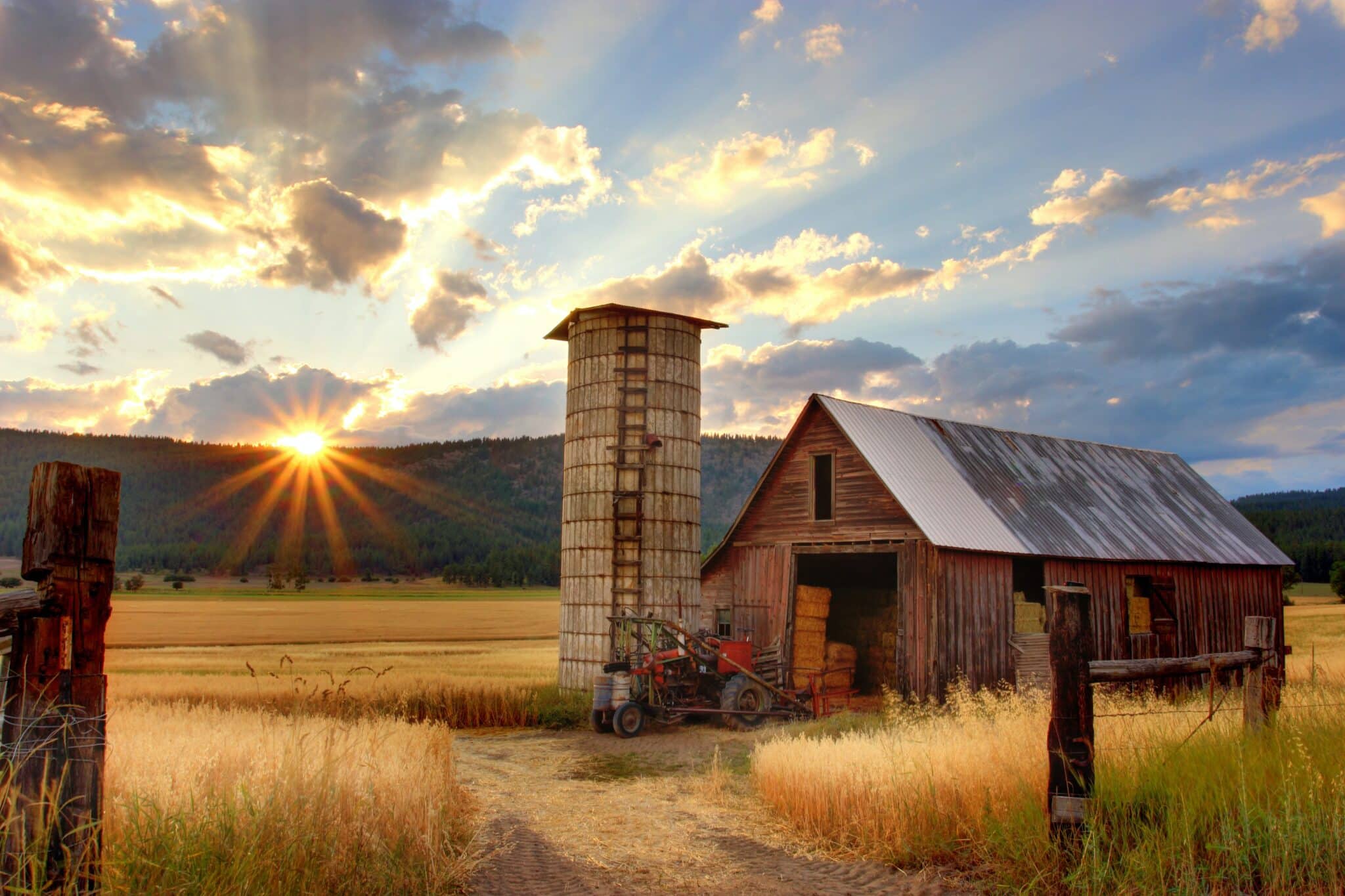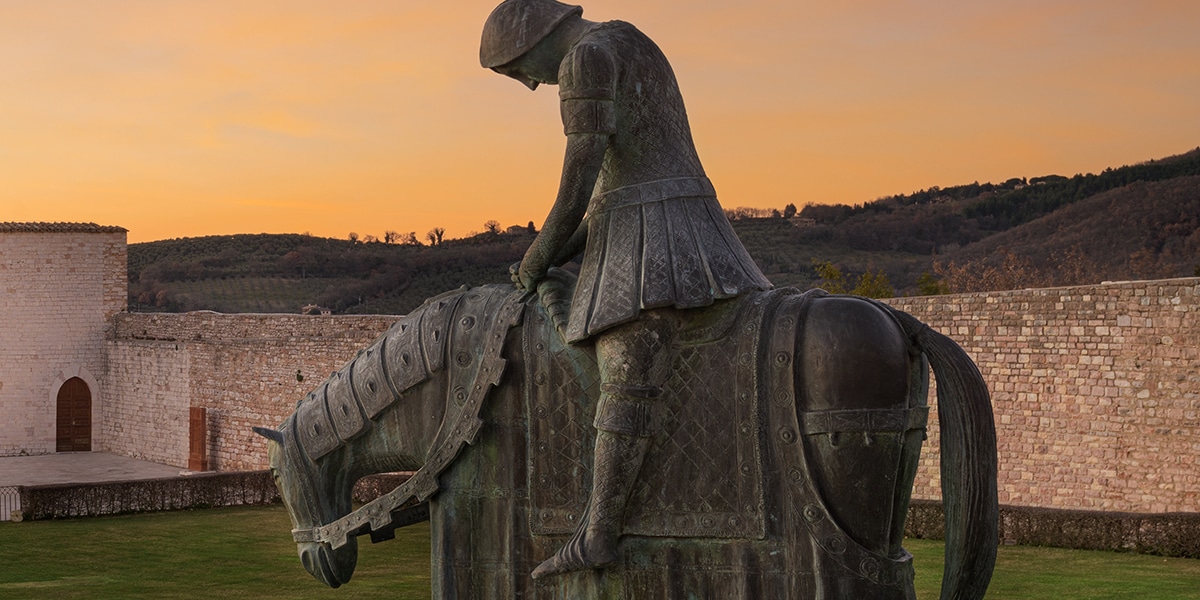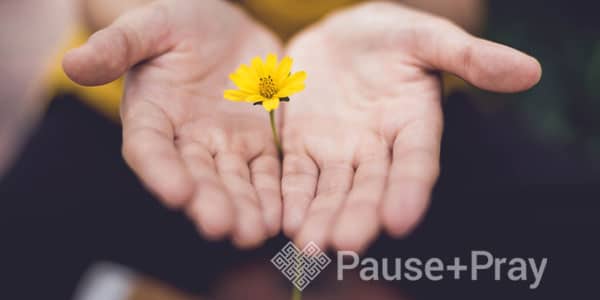Two state roads and three county roads later, I have avoided going “too far, ” though some might wonder if the Kramers have by planting themselves in rural southern Indiana and committing themselves to the complexities of living simply.
Kyle and Cyndi Kramer live with their three small children 8-year-old twins Eva and Clare and 5-year-old Eli in a home Kyle built largely by himself. They use solar power, a cistern and firewood they harvest from their woods. The Kramers grind their own grains, buying them in bulk.
Kyle later jokes that their wedding gifts included a grain mill and other practicalities seldom found on bridal registries! Their cozy home is furnished with substantial pieces that Kyle has crafted, complemented with hand-me-downs. Their home is airy and pleasant, even on a mid-August afternoon. Their dogs, Bella and Lulu, bark at me without menace. I sniff the promise of both bread and soup.
Acres of Life Lessons
Why make this journey off the beaten path? I want to see the earthy outdoor classroom in which Kyle learned Life Lessons in Work, Prayer and Dirt, the subtitle of his 2010 book, A Time to Plant. I want to walk the land Kyle bought in 1999 and visit the pole barn he raised that fall and lived in for four years. I want to see the home that the imminent arrival of twins spurred on.
Lastly, I want St. Anthony Messenger readers to discover with me whether the youthful author has harvested further life lessons as he balances family, a 40-hour workweek at a Benedictine abbey, 27 acres of formerly abused farmland and an idealistic calling to trace the threads that bind his Catholic faith to his “vocation of location. ”
In the first chapter of A Time to Plant, Kyle wrote, “My calling was to a life whose exterior might seem small and insignificant but that cultivated an interior spaciousness and centeredness. I wanted a life that was grounded in acts of justice and awareness of divine mercy, a life connected intimately to other people and to the rest of creation. ” Toward the end of the book, he speaks more of “vulnerability, weakness and need. ” That trajectory continues to unfold in his life.
Kyle and I take a look at the edges of Genesis Farm, while he explains the evolution his family’s ambitions are taking. First, they have expanded their focus beyond organic to what he calls regenerative farming. And second, they are decreasing their focus on market crops so that there’s more time for reflection, family, writing and relationship to the wider community.
As we walk the land, Kyle also feeds the chickens, gathers eggs and introduces me to Fluffy, a decidedly unfluffy rooster. An anonymous and annoying barnyard dictator, Fluffy was headed for an early death until the twins christened him in protest. Fluffy personifies the tension the Kramers experience between stripping away and engagement.
Health and Character
What exactly is regenerative farming? Kyle explains: He and Cyndi are moving toward no-till crops such as nutbearing and fruit trees, berries and perennial vegetables such as asparagus. Tilling releases carbon into the air, and that contributes a lot to farming’s carbon footprint, as does the use of the tractor, Kyle explains. He and Cyndi want to follow nature’s lead.
“Mother Nature doesn’t till. She mulches. ”
That observation has prompted another practice at Genesis Farm. “We’re trying to generate on-farm fertility, not import it from somewhere else. ” The Kramers harvest their hay for mulch, encouraging the richness of their own soil, rather than importing soil amendments from someone else’s land. Because of their commitment to this specific place, they are trying to heal its soil, respect its woodlands and maximize its potential to thrive over the long haul.
“After all, ” Kyle says, “if I ruin this place, it’s ruined for me. I’m not going to move elsewhere. ⦠I can’t escape the consequences. This is our place of sustenance. ”
When Kyle was discerning the life choices that led him to this Indiana farmland, he sought the counsel of Wendell Berry, the distinguished Kentucky farmer, author and activist. Berry encourages small-scale, practical action inspired by broad knowledge and informed principles. It is obvious that Berry has influenced Kyle and Cyndi profoundly. Kyle cites Berry’s belief that a farm’s most important products are the health of the soil and the character of the farmer.
So, while Farmer Kramer nourishes his soil and seeks to improve it, the husband and father also cultivates his inner life. Despite a self-described tendency to brood and obsess, Papa Kramer chooses to nurture and be nurtured by family. While Cyndi keeps the three children entertained in another room after dinner, their laughter erupts often and little Eli escapes several times to crawl on his papa’s lap and distract him. After all, this is the evening, when the family often plays guitar and sings, and it isn’t happening yet!
“God created us in the image of belonging and connection, ” says Kyle. He sees both as very particular, with no pious generalities. So, while he is a man of prayer, he still splits the firewood, lets the chickens out and gets the kids to school on his way to work. At St. Meinrad, a Benedictine seminary, graduate school of theology and publishing house, Kyle is director of lay ministry programs.
Kyle sees a strong resonance between the abbey and the farm, however. Both are about “the work of belonging, ” he says. “While I shepherd people through a graduate theological degree program, ultimately what we’re doing is building community. We’re sending healing agents out into community. And that’s what [Genesis Farm] is about, too. It’s about belonging and healing. ”
For his wife, belonging has come at a price. She is not a native Hoosier and, she says, “Finding kindred spirits in a rural area is not so easy. ” Just as her husband has wrestled with balance and challenge, so has she. “I’m learning how to be more practical and grounded, as my tendency is to live in the world of ideas. ” That groundedness is a daily effort.
Belonging and Healing
Belonging is integral to Benedictine spirituality. Serendipitously, Kyle works with and for the Benedictines. Monks take a vow of stability. Essentially, Kyle and Cyndi have taken this vow as well. But Francis of Assisi also inspires him.
“Francis laughed. Francis showed people that the kind of life he was living was not only satisfying and right, but joyful and happy, ” says Kyle.
While “moral outrage, anger and desire ” drew the youthful idealist to a life rooted in nature, “what’s grown in me is a sense of affection for people and places. ” He adds, “I fall in love with God though the particulars. ⦠God created us in the image of belonging and connection. ”
After attending to place, however, people need to help with the healing. Action follows attention. Kyle and Cyndi have, predictably, given that careful, prayerful thought in their home, as well as on their land.
“I don’t see a lot of distinction between our economic life and our spiritual life. Every economic decision is a moral decision. ⦠The authentic life of Christian discipleship would be a life that is simpler and more mindful. It would be less ambitious and more communal. ”
For the Kramers, that includes bartering for services, giving of their harvest and their talents and participating in the wider community. They know their neighbors by name and by need. They are ministers of music in their small parish.
What about the Global Village?
It seems obvious that not everyone can move to the farm. But what can the typical suburbanite or city dweller do to heal the earth, live more simply and cultivate a sense of belonging?
“An ideal scenario for me, ” says Kyle, “is that we have more people on the land, with smaller acreages, and that there be stronger partnerships between people who live in cities or towns and those who are in rural areas. To be honest, we need each other. ⦠People who live in cities need to find ways to reconnect with nature. They need to know where their food comes from. They need food, period! ”
The larger question, perhaps, observes Kyle, is, “How do we belong in our places? ” The answer, he thinks, is, “First, you make a commitment. This is where I am. ⦠You start being attentive to the place and its needs and its limitations. You inhabit it in a healing way. ⦠You pay attention well enough to know what is the proper scale. What can this land support? Whom can this land support? In what form or fashion? With what lifestyle?
“I would be thrilled if someone read my book and said, âI’m going to live on my little suburban lot and I’m going to plant fruit trees and put in a little garden and grow as much food as I can to eat and share.’ Or someone in the city said, âI’m not going to move out. But I am going to take this vacant lot next door and begin a garden.’ Or, âI’m going to grow tomatoes on the balcony.’ To me, the issue is less about whether you’re in the country or the city, but it’s more the relationship you have with your place and with the people in your place. ”
Paradise Is Still Ahead
Farmer Kramer wants the world to know that he and his family aren’t living in paradise. “This is a hard life, and I’ve got calluses inside and out. But it’s a real life. ”
And real life has its rewards. “What’s been most satisfying is that, however imperfectly and falteringly we do it, we do belong here. We have a place in the world, and it’s a place made and held by grace. ”
Grace must also provide an invisible shield against satellite searches! While Global Positioning Systems facilitate and encourage travel, that’s not the mission of Genesis Organic Farm. Though they welcome visitors, the Kramers really want people to find their own place.








